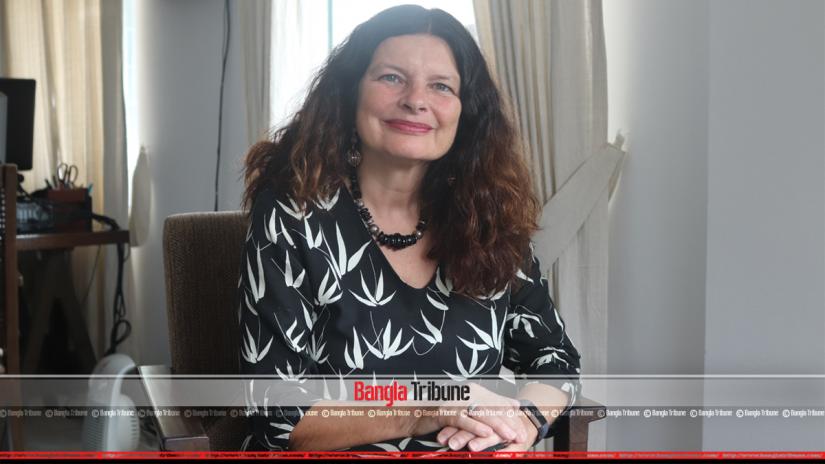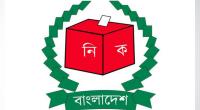 The European Union (EU) wants to have stronger partnership with Bangladesh as it is going to become a growing force in the region.
The European Union (EU) wants to have stronger partnership with Bangladesh as it is going to become a growing force in the region.
“I hope we have a stronger partnership, strategic partnership,” EU Ambassador to Bangladesh Rensje Teerink said in an exclusive interview with Bangla Tribune.
Bangladesh’s relation with the EU has evolved from development cooperation, donor and recipient to a more political relationship and “we should put it on a higher plain maybe at strategic partnership, she said.
Bangladesh and European Union relationship dates back to 1973 and since then it helped in the field of development, economy and governance.
Dhaka has enjoyed duty-free and quota-free access to EU market and it is the biggest export destination of Bangladeshi products.
“We need a stable country and government to have a strategic relation and we will see what happens after the election”, the EU envoy said.
Stability is important, Teerink said before adding: “And then we need to discuss the larger EU agenda and those are democracy, good governance and economic development.”
She said Bangladesh and EU worked together very well at UN and there is still more room to work together. “We need to work with Bangladesh on multilateral forum. It is under threat from many sides and here we find a partner in Bangladesh.”
Transfer of technology is an untapped area of cooperation, said Ambassador Teernik. “As a Dutch citizen, I see enormous potential of transfer of technology to Bangladesh.”
Citing example, she said Delta Plan 2100 is a huge process and if the EU can manage to work on, it’s not only good for Bangladesh but also for them.
The EU has recently declared its Europe-Asia plan under which it wants to accomplish physical connectivity, energy connectivity, digital connectivity and human connectivity of the continents, she said. “I think in terms of connectivity, which is very high on our agenda.”
Challenges
Bangladesh is a success story with a steady growth but at the same time it has some challenges which need to be overcome to progress further, said the envoy. “The overall growth is good but the challenges are needed to be tackled.”
According to her, inclusive growth and good implementation of laws are two big challenges.
The richest segment is tend to benefit from the growth but the big challenge for the poorest section to progress and the trickle-down effect can’t be relied as it always doesn’t work, she said.
About implementation, she said: “So many laws are in place that we learnt, but it is so difficult to enforce it.”
Climate change is another big challenge and EU has committed to help Bangladesh in mitigating the catastrophe, said Ambassador Teernik.
Narrow export basket, pollution, waste management are some of the other areas of concern, she said.
Trade relations
Bangladesh has graduated to a mid-income country and from 2027 it will be no longer eligible for the normal GSP facility that it enjoys currently.
The EU ambassador said Bangladesh needs to apply for GSP plus facility to continue the duty-free regime.
In South Asia, Sri Lanka and Pakistan enjoys it and the EU is reviewing the system, set to be completed by 2020, following which it will be clear how Bangladesh can be benefitted from it, she said. “I don’t think why Bangladesh would not receive GSP plus facility.”
Digital Security Act
The envoy said they are very open about the Digital Security Act and issued few statements from the EU and larger diplomatic community. “There are certain things we closely follow in terms of freedom of speech as some parts of the laws might be misused.”
Citing the briefing by foreign minister and law minister on the new law, Teernik said, “They, especially, the law minister, very clearly said that the last word hasn’t been said about the Digital Security Act.”
The minister told diplomats that there is still room for adaptation and there is an ongoing dialogue with the media, said the EU envoy.
“I think the number of media outlets doesn’t show that there is press freedom but also one needs to look at content.”


